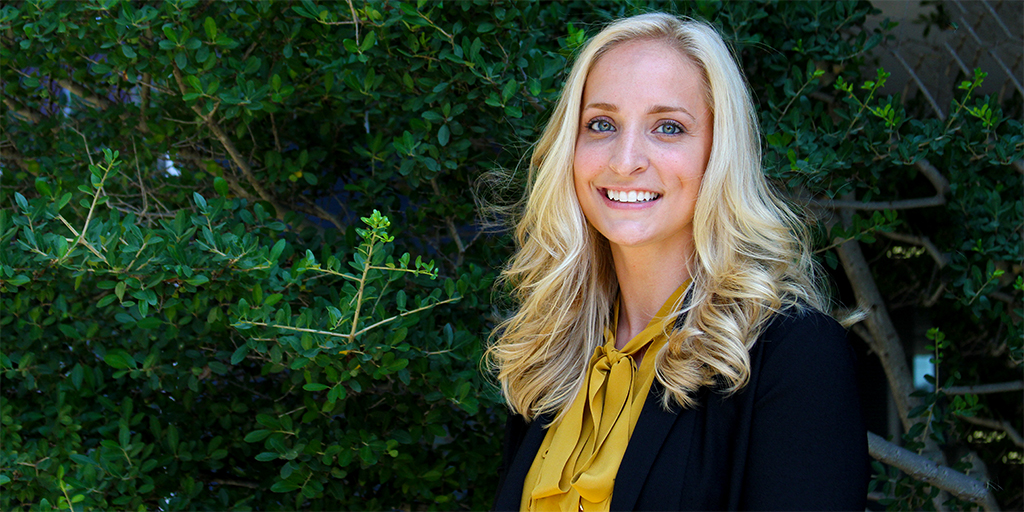Baylor prof uses her OCD journey to inspire others battling mental illness

Elizabeth McIngvale was 12 years old when her battle with obsessive-compulsive disorder (OCD) began. At first, it was asking her mother repeatedly if she was okay; then, it was seeking reassurance about other normal things. Before long, she was washing her hands hundreds of times a day, and eventually she became completely homebound. Seemingly overnight, she went from being a normal pre-teen girl, preoccupied with gymnastics and school activities, to a frightened, confused young woman who struggled to function in daily life.
Almost 20 years later, McIngvale — now Dr. Elizabeth McIngvale-Cegelski — is an assistant professor in Baylor’s Diana R. Garland School of Social Work, teaching in both Waco and Houston. Having learned to manage and live with the disorder, she is now an advocate for others with mental illness.
But the journey to education and advocacy was a long process. Cegelski’s OCD battle started with those compulsive rituals she felt powerless to stop; equally frightening was the notion of telling anyone what she was feeling. But as the rituals took over her daily life, her family took notice and began searching for help.
She was diagnosed with OCD, and doctors in her native Houston told her family that her illness was too severe to be treated. Her parents, though, weren’t ready to give up on their daughter, and their search led them on a quest throughout her teenage years that eventually yielded a breakthrough. (Hear Cegelski tell her story here; you can learn more in this Houston Chronicle feature and on the Peace of Mind website.)
Were it not for her own family’s means, she likely would not have received the treatment she needed as a teenager. (Houston-area Bears are likely familiar with her father, Gallery Furniture owner Jim McIngvale, better known to TV audiences as “Mattress Mack.”) That realization birthed a desire to make education and treatment options available to families of all income levels, not just those who could afford the great expenses associated with treatment.
She started by serving as a national OCD spokesperson for the International OCD Foundation as a high school student, trying to break the stigma associated with mental illness. Along the way, she started a non-profit organization, the Peace of Mind Foundation, as a resource for others battling OCD.
At Baylor, she found a place that allowed her to combine her desire to share her story with the opportunity to teach and research OCD. She teaches classes on mental illness and connects Baylor social work students with organizations in Houston that will enable them to grow in their understanding of and service to those with mental illness.
“Baylor values service. How are you taking what your research is, and what your experiences are, and applying them outside the walls of the university?” Cegelski says. “Baylor also allows you to take this work into faith-based communities, which can be advocates in helping those with mental illness.”
Today, her story serves as a foundation to help both her students and those dealing with some form of mental illness see that it’s something that can affect anyone.
“By telling my story and saying, ‘Yes, I’m a faculty member at Baylor, but I still live with this,’ that’s huge in breaking down stigma,” Cegelski says. “There’s a perception out there about mental illness. But one in four people will live with a mental illness at some point in their lifetime. I hope my story and the research we’re doing here at Baylor can help people see that mental illness is something that functioning people you know and interact with everyday can be facing. If we train and educate people, the stigma can be reduced.”
Sic ’em, Elizabeth McIngvale-Cegelski!

